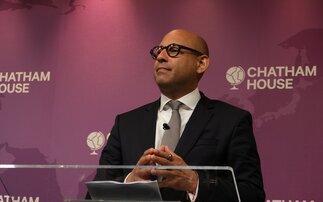New LSE report shows current package of national GHG action plans still insufficient to tackle climate change
The greenhouse gas pledges countries have submitted in a bid to deliver a new climate change treaty will not be enough to stop average global temperatures passing the international target of two degrees of warming, new analysis has warned today.
A paper published by researchers at the London School of Economics Grantham Research Institute on Climate Change found the pledges made by countries ahead of the Paris Summit through the UN's system of Intended Nationally Determined Contributions (INDCs) would reduce emissions by about 10 billion tonnes by 2030 compared with a business-as-usual scenario.
The paper analysed pledges from 46 countries and found they would lead to annual global emissions of 56.9 billion to 59.1 billion tonnes of carbon dioxide equivalent (CO2e) in 2030.
The UN estimates that no more than 36 billion tonnes of emissions can be released into the atmosphere in 2030 if the world is to have a 50 per cent chance of meeting the two-degree target, although the target rises to 42 billion tonnes in a scenario where "negative emissions" technologies such as bioenergy with carbon capture and storage is deployed later in the century.
Consequently, the LSE team calculates that delivering on the targets set out to date would still result in a breach of the emissions budget for standing a reasonable chance of limiting temperature increases to 2ºC - a budget which has been previously agreed by governments.
The 46 countries in the study include the US, Japan, the EU and China, and account for 58 per cent of the world's emissions.
However, the analysis used a cut-off date of 20 July, so does not include the emissions pledges made by 10 countries since then, such as Australia and Kenya. A spokesman for LSE admitted this was a limitation of the study, but did not change the message that current pledges still fall well short of what is required to meet the 2ºC target.
Experts have long predicted that even when every country has submitted their INDC, the combined pledges are unlikely to be compatible with the 2ºC target. As a result, growing numbers of governments are calling for any treaty agreed in Paris to include a review mechanism that would allow countries to ratchet up their emission reduction pledges as new clean technologies emerge.
Yesterday, the Democratic Republic of Congo became the latest country to submit its INDC, announcing a 17 per cent reduction target compared with a business-as-usual scenario by 2030. But this was conditional on it receiving an estimated $12.54bn of support from the international community.
"The mismatch between the ambitions embodied by the INDCs and the overall objective of having a reasonable chance of avoiding global warming of more than 2ºC means that Parties to the UNFCCC should undertake additional action," the LSE paper states.
It recommends the UN urgently focuses on identifying "credible ways" of achieving bigger emissions reductions which can be included in INDCs, and an intensification of efforts to increase investment and innovation in low-carbon technologies.
See our map detailing what countries have pledged so far towards a Paris deal
This article is part of the BusinessGreen Road to Paris Hub, hosted in association with PwC.









